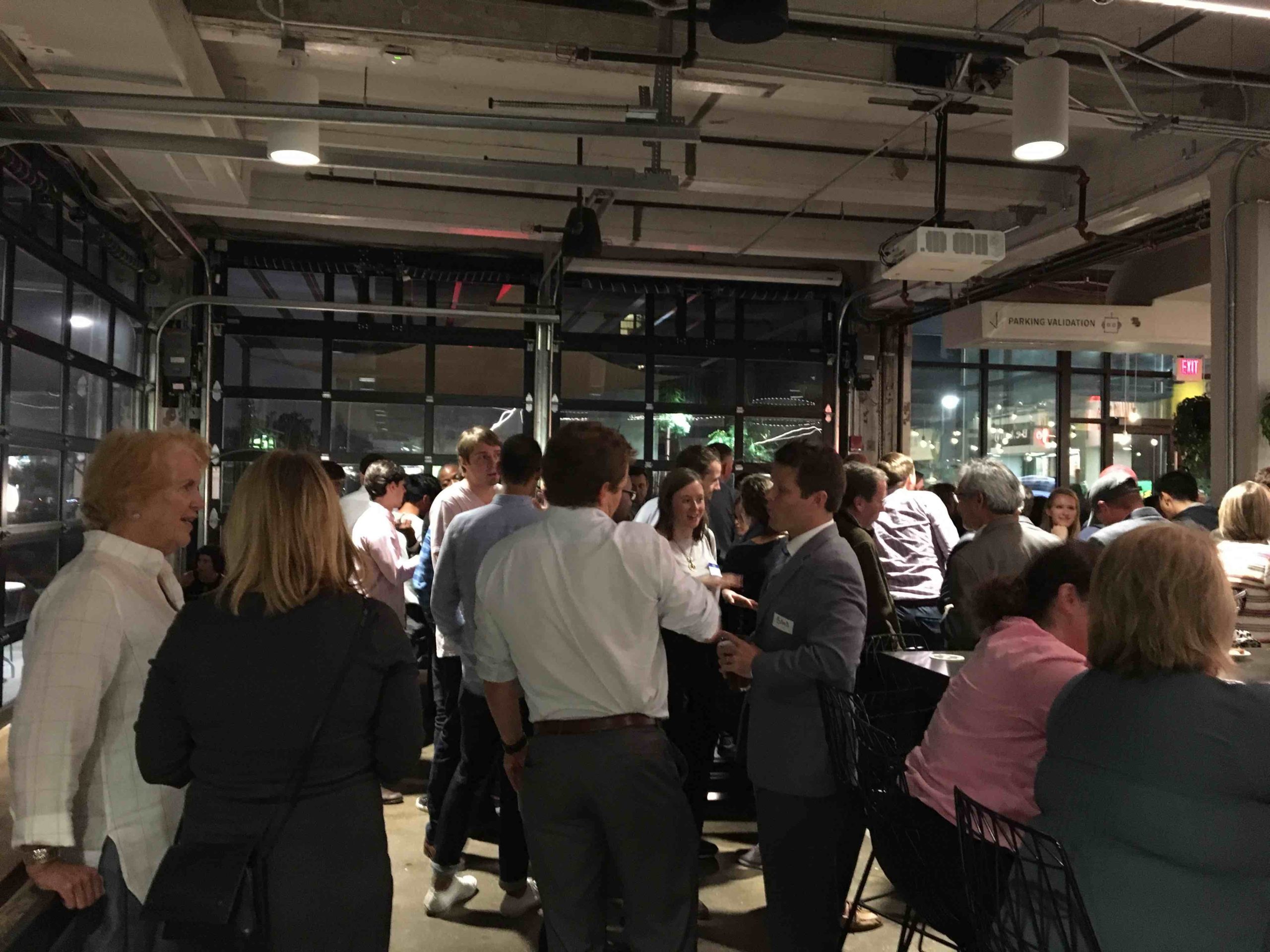As the leaves settle on the ground, so do the newest Venture for America fellows into the place they’ll call home for the next two years. The food hall R. House, which was spearheaded by two VFA Fellows, hosted the full group last week, giving new fellows the chance to mingle and chow down on gourmet hors d’oeuvres with the current cohort and meet members of the tech community.
Right now, 40 Baltimore companies have hired a fellow or currently employ one. This year, a total of 21 new fellows are working at 16 companies, according to VFA’s Baltimore director Josh Russakis. Baltimore has more new fellows entering for 2017 than any other city where VFA operates, Russakis said.
The program places recent grads at startups for two years. Many have remained in Baltimore after their time with the program was complete.
“We are essentially…think Teach for America for entrepreneurship,” said Russakis. “We are seeking to create economic opportunity in American cities by recruiting and mobilizing the next generation of entrepreneurs, equipping them with the skills they need to go forth, start their own companies, add value to companies and create jobs.”
Dawn Musil, a graduate of Ohio State working with PathSensors, attributes the testimony of other Baltimore fellows for drawing her to this city.
“A couple of the fellows sold Baltimore as it is such a hub for community,” she said. “There’s so much happening culture wise in terms of civil movements and innovation – there’s just so much happening.”
Musil also gives credit to the biotech opportunities. She studied biology in college but said she wanted to learn the business side of her industry in order to have the greatest potential to influence change in policy and medicine.
“It’s the best thing at a small company because you get to do everything,” said Musil, mentioning her work with market research, developing new biosensors, and writing grants for the National Institutes of Health. “It’s really intense but so much fun.”
James Dolgin, a fellow with Pixelligent Technologies was interested in having a less conventional engineering job, so a startup was the place for him.
“You get to have ownership of your project[s] and see them all the way through. You’re not just doing one task every day; not the same mundane thing over and over again,” said Dolgin, who added that he only realized recently that this is what he enjoyed about working at a small company. “I didn’t really know what the allure was until I started.”
PathSensors CEO Ted Olsen said VFA is a tool that allows him to pick from the cream of the crop, whittling 2,500 students down to about 175 at the final cut. Musil is the third fellow they’ve hired, and as far as Olsen is concerned, when he hires them, he’s hiring them to stay.
“They’re high potential, high impact people,” he said. “I haven’t found one I wouldn’t keep for 20 years.”
Companies employing VFA fellows this year include:
- Adashi Systems
- Avhana Health
- BHI Management
- Blispay
- bwtech@UMBC
- Johns Hopkins FastFoward
- Legends of Learning
- Leverege
- Oasis Marinas
- PathSensors
- Pixelligent
- Rendia
- Snag-A-Slip
- TEDCO
- Volo City
- Zeel
Join the conversation!
Find news, events, jobs and people who share your interests on Technical.ly's open community Slack

Baltimore daily roundup: Medtech made in Baltimore; Sen. Sanders visits Morgan State; Humane Ai review debate

Baltimore daily roundup: The city's new esports lab; a conference in Wilmington; GBC reports $4B of economic activity

Baltimore daily roundup: Find your next coworking space; sea turtle legislation; Dali raided and sued

